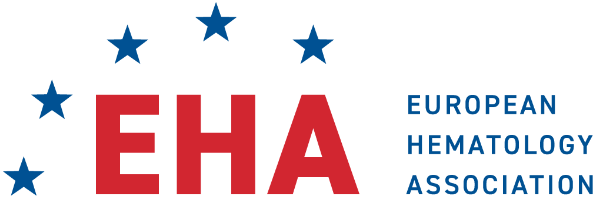- Center on Health Equity & Access
- Clinical
- Health Care Cost
- Health Care Delivery
- Insurance
- Policy
- Technology
- Value-Based Care
EHA 2024: Striving Toward Innovation, Sustainability in Hematology
The 2024 European Hematology Association (EHA) Congress, convening virtually and in Madrid, Spain, from June 13-16, 2024, will feature practice-changing findings in hematology and oncology, as well as ample networking opportunities and conversations about the future of the field.
In convention center halls named for renowned Spanish painters—Picasso, Goya, Dalí—clinicians, researchers, regulators, and advocates will instead discuss the art of hematology as they gather in Madrid for the 2024 European Hematology Association (EHA) Congress from June 13 to 16. EHA organizers anticipate this year’s meeting will break records both in terms of hybrid attendees and submitted abstracts, at more than 17,000 and 3000, respectively.
The meeting agenda promises the posters, panels, symposia, and workshops that have been staples of past years’ EHA congresses, but also the opportunity for more informal learnings through networking lounges designed for interaction and mentorship initiatives matching early-career hematologists with those more experienced. Another highlight will be the YoungEHA sessions, which are targeted to those early-career scientists and clinicians. Topics run the gamut from reducing waste in research and clinical care to improving end-of-life care in hematology to research meetings on specific therapeutic areas.
EHA organizers anticipate this year’s meeting will break records both in terms of hybrid attendees and submitted abstracts. | Image Credit: © European Hematology Association

Also returning to this year’s congress are the popular debates in which experts spar on either side of a timely issue.1 Attendees can listen to these collegial arguments regarding treatment and testing strategies in hematologic malignancies, anemia, and thrombosis, but also on a pressing question for health care payers: should all patients with hemophilia be given access to gene therapy, or just those most likely to benefit?
Other thorny questions will be tackled in joint sessions, such as that featuring representatives from the European Medicines Agency, who will join EHA hematologists and patient advocates to discuss the future of using real-world evidence to supplement clinical trial data. Another hot topic appearing across the agenda is the use of minimal residual disease for multiple myeloma decision-making, which is the subject of an education session on Saturday, June 15; a workshop on Sunday, June 16, and a presentation during the second Presidential Session, also on Sunday.
As EHA attendees look forward to each year, the congress will be packed with new research findings, particularly those presented during the plenary session and late-breaking abstract session.2 The plenary, taking place on Saturday, will feature findings from phase 3 trials in myeloma, leukemia, lymphoma, thalassemia, and more, whereas the late breakers on Sunday span from phase 1 research on lymphohistiocytosis to phase 3 research on mantle cell lymphoma.
Antonio Almeida, MD, president of EHA and head of the Department of Hematology at Hospital de Luz in Lisbon, Portugal, told The American Journal of Managed Care® that the submitted abstracts reflect “really top-notch science, not only in terms of clinical science, but also fundamental science…. We have also work presenting fundamental research and new pathways in hematology.” Particular sessions called out by Almeida as must-sees included the following:
- A talk by Maria Domenica Cappellini, MD, professor of internal medicine at the University of Milan, Italy, on progress in thalassemia research
- Updates from John Gribben, MD, DSc, professor at Queen Mary University of London, on chronic lymphocytic leukemia
- Presentations by Torsten Haferlach, MD, founder of the Munich Leukemia Laboratory, on how artificial intelligence may change hematology practice
As is only fitting for a conference focusing on blood, the EHA Congress will celebrate World Blood Donor Day on Friday, as mobile blood donation units from the Spanish Red Cross will be on site to offer attendees the chance to give back.
References
1. Mattina C. Experts spar over role of real-world data as replacement for clinical trials in hematology. AJMC®. June 9, 2023. Accessed June 10, 2024. https://www.ajmc.com/view/experts-spar-over-role-of-real-world-data-as-replacement-for-clinical-trials-in-hematology
2. Mattina C. EHA 2023 Late-breaking abstracts offer sneak peek at the future of hematology. AJMC. June 11, 2023. Accessed June 10, 2024. https://www.ajmc.com/view/eha-2023-late-breaking-abstracts-offer-sneak-peek-at-the-future-of-hematology
